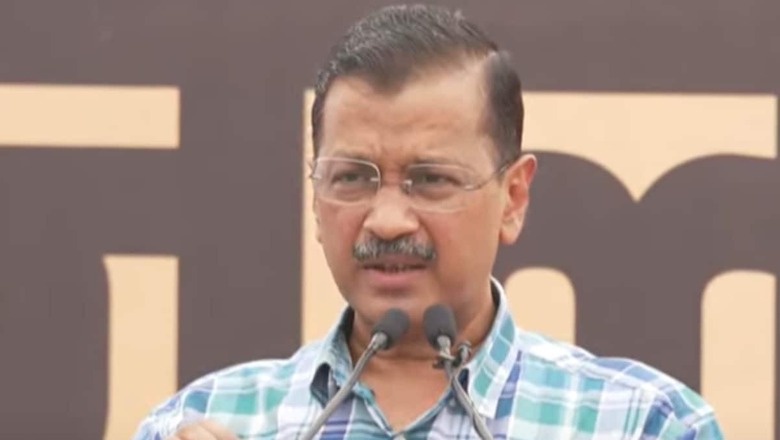
views
While the Supreme Court (SC) on Friday granted bail to Delhi Chief Minister (CM) and Aam Aadmi Party (AAP) chief Arvind Kejriwal, through the course of the hearings, he has faced judicial criticism, with both the Supreme Court (SC) and Delhi High Court (HC) raising serious concerns about his involvement in the ongoing investigations into the Delhi excise policy case.
The Supreme Court had highlighted the contradictions in his defence, particularly during hearings under the Prevention of Money Laundering Act (PMLA).
Meanwhile, the Delhi High Court had accused Kejriwal of being actively involved in concealing the proceeds of crime. Furthermore, the court pointed to his responsibility in delaying the investigation process and hindering the start of the trial, casting doubt on his role in the alleged scam.
The HC had noted that a statement recorded on March 20, 2024 — a day before his arrest by the ED — contains material that prima-facie incriminated Kejriwal in the case.
ADVERSE COMMENTS BY DELHI HIGH COURT
- In April 2024, Justice Swarana Kanta Sharma while pronouncing the verdict said that Kejriwal was actively involved in the concealment of proceeds of crime, as per evidence advanced by the ED.
- She had also recorded a prima facie finding that there was adequate material, including statements of approvers, involvement of middlemen and references that cash was handed over for expenditure in the 2022 Goa assembly elections.The court said that Kejriwal’s arrest was not in contravention of law and remand can’t be termed “illegal”.
- “The primacy concern for the court is to uphold the constitutional morality rather than political morality,” the Delhi High Court said, while rejecting Chief Minister Arvind Kejriwal’s plea against his arrest and rebuking him for “casting aspersions” on the judicial process.
- The High Court also pointed out that the ED has relied upon a host of statements given by approvers and witnesses which prima facie reveal that Mr. Vijay Nair, former AAP communications in-charge, had received kickbacks to the tune of ₹100 crore from the “South Liquor Lobby” on behalf of the Chief Minister.
- The court had also said that “the contention that Kejriwal could have been questioned through VC is to be rejected. It is not for the accused to decide how the investigation is to be done. It cannot be as per the convenience of the Accused. This court won’t set two sets of laws- One for the commons and the other for the public servants. There cannot be any specific privilege for any one including the Chief Minister”.
- The court also observed that Kejriwal had not challenged the nine summons issued to him by the ED in court. The court also held Kejriwal responsible for the delay in the investigation and for the non-commencement of the trial.
‘CBI should not be a caged parrot’: Justice Bhuyan’s sharp remarks for the investigating agency during hearing on Kejriwal’s bail pleaNews18’s @anany_b shares details of what transpired in top court @akankshaswarups | #ArvindKejriwalBail #SupremeCourtOfIndia #CBI pic.twitter.com/G79htZ6MPp
— News18 (@CNNnews18) September 13, 2024
Adverse Comments by the Supreme Court
- In April 2024, regarding Kejriwal’s refusal to give statement to the ED, Justice Sanjiv Khanna, as part of two-judge bench hearing the case, had said, “Are you not contradicting yourself by saying that his statements under Section 50 of the Prevention of Money Laundering Act (PMLA) were not recorded? You don’t appear on summons for recording of statements under Section 50 and then you say it was not recorded.”
- “If you do not go for recording of Section 50 statements, you cannot take the defence that his statement was not recorded,” he had added.




















Comments
0 comment